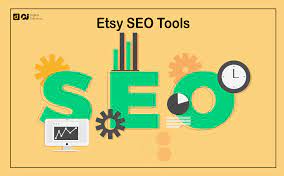Digital marketing agency pricing

Digital marketing agency pricing can vary depending on several factors, including the agency’s reputation, expertise, location, scope of services, and the specific needs of your business. Here are some common pricing models and factors to consider:
About Digital marketing agency pricing
- Hourly Rates: Some agencies charge an hourly rate for their services. The rates can vary widely based on factors such as the agency’s size, location, and experience level. Junior-level staff typically have lower rates compared to senior-level professionals.
- Monthly Retainer: Many agencies work on a monthly retainer basis. They charge a fixed fee per month for a set number of services or hours. This model provides ongoing support and often includes a range of services like strategy development, content creation, social media management, and advertising campaigns.
- Project-Based Pricing: For specific projects with a well-defined scope, agencies may offer a fixed price. This can be suitable for one-time campaigns, website development, or other clearly outlined deliverables.
- Performance-Based Pricing: Some agencies tie their fees to the performance metrics of the campaigns they run for you. This could be based on metrics like the number of leads generated, conversions, or revenue generated. Performance-based pricing can involve a fixed fee plus a percentage of the results achieved.
- Commission-Based Pricing: In certain cases, agencies may earn a commission on ad spend or a percentage of the sales generated through their marketing efforts. This model is commonly used in affiliate marketing or for agencies that primarily focus on paid advertising.
It’s important to note that pricing structures can vary significantly across different agencies and regions. When selecting an agency, consider their track record, expertise in your industry, the scope of services they offer, and their ability to align with your specific business goals. It’s also crucial to discuss and clarify pricing details, any potential additional costs, and the terms of the agreement before engaging an agency.
Details about the factors that influence pricing:
- Scope of Services: The types of services you require from the agency will have a significant impact on pricing. Digital marketing services can include strategy development, search engine optimization (SEO), pay-per-click (PPC) advertising, social media management, content creation, email marketing, conversion rate optimization, web design and development, analytics, and more. The more extensive and specialized the services, the higher the cost is likely to be.
- Agency Reputation and Expertise: Agencies with a strong reputation and proven track record of success generally command higher prices. If an agency has demonstrated expertise in your industry or has worked with well-known brands, their rates may be higher due to their perceived value.
Agency Size and Overhead Costs
- Agency Size and Overhead Costs: Larger agencies with more employees and overhead costs may have higher pricing to cover their expenses. However, larger agencies might also offer a wider range of services and resources.
- Geographic Location: Pricing can vary based on the region where the agency is located. Agencies in major cities or countries with higher living costs tend to have higher rates compared to agencies in smaller towns or countries with lower living costs. Local market competition can also influence pricing.
- Customization and Complexity: If you require customized strategies or complex campaigns tailored to your specific business needs, the pricing is likely to be higher. Highly specialized services that require extensive research, data analysis, or advanced technical skills may also come at a premium.
- Contract Duration: Long-term contracts or retainer agreements often come with discounted rates compared to short-term or project-based engagements. Agencies may offer pricing incentives for clients who commit to a longer-term partnership.
- Additional Costs: Some agencies may charge additional fees for expenses like ad spend (if they manage your advertising campaigns), software subscriptions, graphic design work, website hosting, or third-party tools required for executing your marketing strategies. Make sure to clarify if these costs are included in the pricing or if they will be billed separately.
It’s important to note that pricing structures and models can vary from agency to agency. When exploring potential agencies, it’s best to request detailed proposals or quotes that outline the specific services, deliverables, and associated costs. This allows you to compare offerings and make an informed decision based on your budget and business requirements.
some general information about digital marketing agency pricing:
- Hourly Rates: Many agencies charge an hourly rate for their services. Hourly rates can range from $50 to $300 or more, depending on factors such as the agency’s location, reputation, expertise, and the experience level of the professionals working on your project. Junior-level staff typically have lower rates, while senior-level or specialized experts may charge higher rates.
- Monthly Retainer: A common pricing model is the monthly retainer, where you pay a fixed fee per month for a set number of services or hours. Retainer fees can range from a few hundred dollars to several thousand dollars per month, depending on the agency’s size, services included, and the level of support you require. The cost can increase if you need additional services or if you have a larger marketing budget.
Project-Based Pricing
- Project-Based Pricing: For specific projects with a clearly defined scope of work, agencies may offer a fixed price. Project-based pricing can range from a few hundred dollars for smaller projects to tens of thousands of dollars or more for larger-scale initiatives like website development, comprehensive marketing campaigns, or launching a new product/service.
- Performance-Based Pricing: Some agencies offer performance-based pricing models, where their fees are tied to specific performance metrics. This can include factors such as the number of leads generated, conversions, sales, or revenue generated through their marketing efforts. Performance-based pricing often involves a combination of a fixed fee and a percentage of the results achieved.




